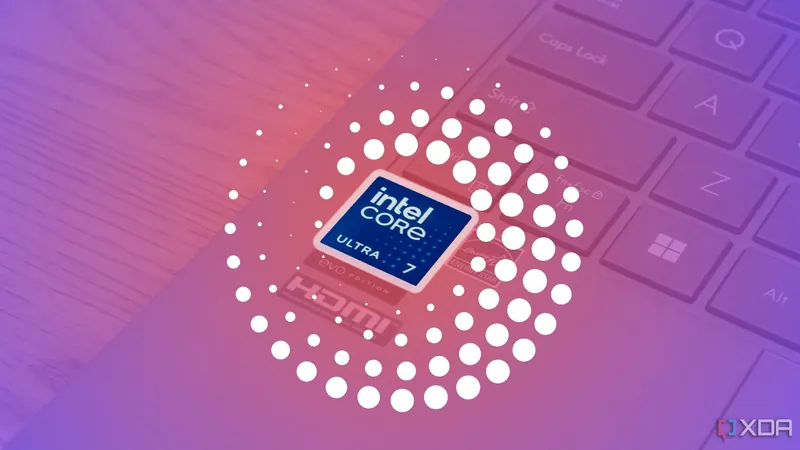
Intel Dominates the Ultrabook Landscape: Why Laptop Manufacturers Are Staying Loyal
2024-09-29
The Leading Ultrabooks: A Closer Look
When dissecting the ultrabook offerings from big names like HP, Dell, Lenovo, and Asus, a clear pattern emerges: Intel is favored for high-end devices. Take Lenovo's elite ThinkPad X1 Carbon Aura Edition and Yoga Series 9, for instance; these devices are solely equipped with Intel CPUs.
Dell provides options for the XPS 13 with both Lunar Lake and Snapdragon X Elite CPUs, but its other models, such as the XPS 14 and XPS 16, come with Intel processors only. Similarly, HP's Omnibook Flip and Asus's Zenbook S14 exclusively feature Intel's Core Ultra Series 2 CPUs.
While mid-tier offerings like the Vivobook, Yoga Series 7, and ThinkPad T series have improved significantly, it’s clear that the pinnacle of technology and innovation is reserved for flagship devices powered by Intel.
Why Intel is Unmatched in Availability and Software Compatibility
One of the primary reasons Intel maintains its commanding lead is availability. Unlike AMD, which often faces supply chain hurdles, Intel has consistently provided a steady supply of its latest technologies. The Intel Lunar Lake laptops showcased at IFA 2024 are already available for pre-order in major markets like the US and India, showcasing Intel's logistical strength.
Moreover, Intel's x86 architecture offers unmatched software compatibility. Unlike Qualcomm's ARM-based Snapdragon X lineup, Intel CPUs face no challenges with application or gaming compatibility. This reliability ensures that consumers investing in premium ultrabooks can enjoy immediate access to all major applications and games, a critical factor for discerning customers.
Qualcomm's Position: The Waiting Game
2024 has marked a significant period for Qualcomm as they introduced their Snapdragon X-series processors, promising impressive battery life and performance. However, their devices have struggled with gaming and app compatibility, leaving many to question their viability. With the festive shopping season approaching, it will be crucial to watch whether buyers will choose these new ARM-powered laptops or stick with the traditional Intel and AMD offerings. If Snapdragon devices don’t perform well in sales, manufacturers might hesitate to adopt them for future high-end products.
The Future of Intel’s Lunar Lake Architecture
Intel's Lunar Lake CPUs have been described as game-changers, addressing past criticisms regarding battery life and efficiency. Recent reviews, including one for the XPS 13, highlight the strong performance and impressive integration of graphics capabilities. With advancements that meet long-standing consumer demands, Intel has enhanced its position further.
Conclusion: Intel's Unshakeable Lead
As of now, unless Intel stumbles drastically, there appears to be little incentive for laptop makers to pivot towards AMD or Qualcomm for their flagship offerings. It seems manufacturers will continue to offer Ryzen or Snapdragon options primarily in mid-range models while keeping Intel as the primary choice in their elite lines. The ultrabook market remains firmly in Intel's grip as it continues to innovate and cater to the high-end laptop segment.
Stay tuned for updates as the competition unfolds and see if any challenger can rise to Intel's throne in the premium ultrabook arena!





 Brasil (PT)
Brasil (PT)
 Canada (EN)
Canada (EN)
 Chile (ES)
Chile (ES)
 España (ES)
España (ES)
 France (FR)
France (FR)
 Hong Kong (EN)
Hong Kong (EN)
 Italia (IT)
Italia (IT)
 日本 (JA)
日本 (JA)
 Magyarország (HU)
Magyarország (HU)
 Norge (NO)
Norge (NO)
 Polska (PL)
Polska (PL)
 Schweiz (DE)
Schweiz (DE)
 Singapore (EN)
Singapore (EN)
 Sverige (SV)
Sverige (SV)
 Suomi (FI)
Suomi (FI)
 Türkiye (TR)
Türkiye (TR)